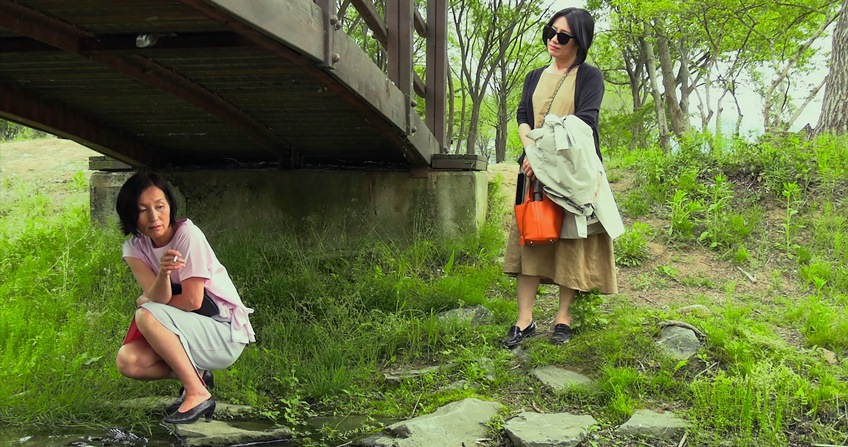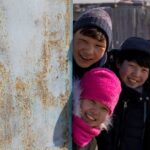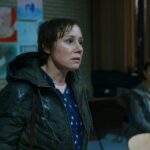Joyce Glasser reviews In Front of Your Face (23rd) Cert (12A), 86 mins.
Like John Steinbeck’s Of Mice and Men, Hong Sangsoo’s In Front of Your Face is a perfectly formed, taut work of art that is circular, with the ending being almost identical to the opening, but for minute changes dictated by all that has transpired between the two. The film opens and ends with two sisters waking up and mentioning dreams. The film itself has a dreamlike, almost metaphysical quality that sits delicately upon an otherwise realistic “slice of life” style of filmmaking.
Considering sixty-one-year-old Sangsoo has made twenty-eight films, it is surprising that he has never worked with Lee Hyeyoung before, a leading actress in the 1980s. But it is also fitting, for in one of the great scenes in In Front of Your Face, a younger film director (Kwon Haehyo) goes to great lengths to meet Sangok (Hyeyoung), a fifty-year-old actress and convince her to work with him. Form and content merge again as Sangsoo’s relaxed, anti-story telling style flushes out the reality of life in front of our faces.
The secret to his magical style, the touch so light you hold your breath for fear of shattering the image across the screen, is that Sangsoo not only writes his films, but likes to edit them and compose the music.
Sangok awakens in pain on the sofa of her only sibling, Jeonok’s (Cho Yunhee) newly acquired tower-block flat in Seoul. She utters words like a prayer: ‘Everything I see before me is grace. There is no yesterday, no tomorrow, but this moment right now is Paradise.’ Then a short pause and a rethink. ‘It could be Paradise.’
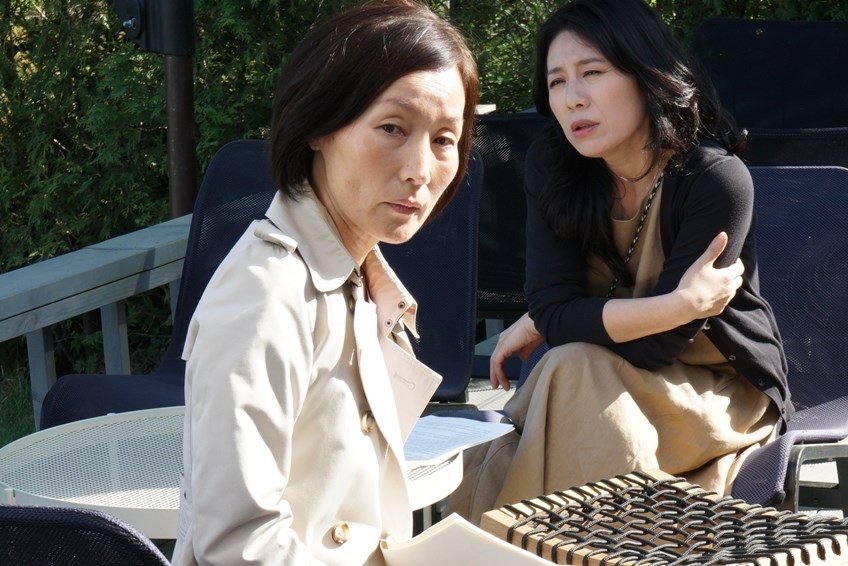
The day is planned around Sangok’s lunch meeting (she assumes) with a director who has been so persistent in his desire to meet her that, curious, Sangok agreed. The sisters decide to go out for breakfast at a garden restaurant Jeonok likes, and not only for its great coffee. The women sit outside in a prestige, shiny new development where the talk turns to real estate. Jeonok would like to move to this new area and suggests that Sangok buy a flat here as an investment. It’s time Sangok returned to Seoul so the remaining family can be together.
During this awkward conversation Jeonok is shocked to realise how little she knows about her sister who left for the United States years before “with some guy.” She imagined a glamourous life, but Sangok reveals matter-of-factly that after working in a travel agency, she managed a liquor store in Seattle, and rented her home, so she has no equity. But there are more secrets, including one Jeonok fails to guess even when she tells her sister she is so thin that she looks sick.
During a stroll in the gardens of the new development, Sangok is recognised by a cinephile, who offers to take a photo of the two sisters, struggling with a selfie. This is the first objective evidence we have of Sangok’s career in a television series. She was not a big star, but she was talented. People remember her.
The sisters then stop by Jeonok’s entrepreneurial son’s tteok bokki restaurant where they stop for a tasting. Ominously, Sangok spills the red sauce on her pink blouse, but decides not to make a big deal about it. It is then we start to notice what looked like an ordinary t-shirt but is in fact an elegant two-tier supple blouse made asymmetrical by a beautiful bow at the side that moves with its wearer. You start to focus, too, on the wearer’s elegance as the blouse seems to be an extension of her.
Despite downplaying the impact of the stain, as they exit the tiny restaurant Sangok covers her blouse like a wound, just as her nephew catches up with them and gives his aunt a “welcome to Korea” gift. Sangok opens it on the street: it is a wallet with $100 in it. Clearly the nephew is another fan: there is a special rapport between aunt and nephew that has survived her absence. We hear Sangok’s internal prayers, ‘Help me to be the kind of person worthy of this gift.’ Is there something we don’t know?
When the location and time of the lunch is changed by a text message, Sangok has her taxi stop off at the house where she was born. The owner, who has a shop there, lets her in. The garden looks so small, although it is she who has grown. At the end of her visit, Sangok sits down, overwhelmed by the memories. Suddenly, she is confronted by the owner’s young daughter who faces her, back to us. Sangok impulsively reaches forward to embrace her, as though embracing her young self.
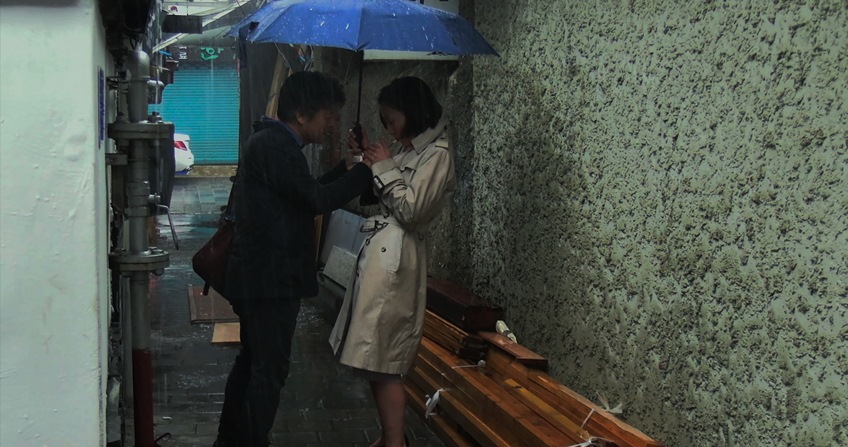
The meeting with the director is a tour de force, full of idiosyncratic details and lines (the name of the bar is “novel” and a comparison with the director’s style ensues) that are not throw away but are recited as though they are. The effect is an ad-libbed style so natural we seem to be eaves dropping.
The director has hired an intimate bar for the meeting (the owner is absent) but has to make hasty arrangements for lunch given the change in schedule. As the director sends his assistant out for Chinese takeaway (apparently as common in Seoul as in London) and then gets rid of him altogether, he reveals to Sangok he has wanted to work with her – and has had a more intimate desire – since University when a film she was in “engraved itself in my heart.”
When lunch is over, the two continue to drink. Sangok plays the owner’s guitar (badly), focusing on the instrument to cool the rising temperature. The director does not want this chance to go by and will plan the film around her schedule. But accommodating though he is, is he already too late?
The director impresses Sangok with his memory. He recalls a scene in which she stretches her hand out to a pigeon. ‘Your face then, it was like a blessing.’ A year later in the spring of 1991, he recalls her looking out the window of a taxi, ‘in that vibrant green dress. Your face staring at the falling white snow. It was an honesty I’d never seen on screen. I felt a true authenticity behind your purity.’
His words transcend that now forgotten director and production and describe just what we are watching: an honesty and purity seldom seen on screen. Not in 1991, but in 2022, right in front of your face.

